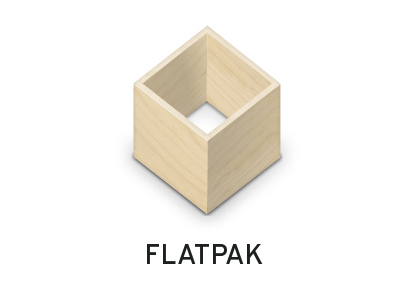How To Install Flatpak on Ubuntu 22.04 LTS

In this tutorial, we will show you how to install Flatpak on Ubuntu 22.04 LTS. For those of you who didn’t know, Flatpak is a system for building, distributing, and running sandboxed desktop applications on Linux. Developed by Alexander Larsson, a Red Hat employee, Flatpak aims to solve the dependency and compatibility issues that have long plagued Linux users. Unlike traditional package managers, Flatpak packages include all the necessary libraries and dependencies, ensuring that applications run consistently across different distributions.
Flatpak stands out from other package managers like Snap and AppImage due to its use of namespaces for sandboxing, which enhances security by isolating applications from the host system. This approach not only improves security but also ensures that applications do not interfere with each other or the underlying system.
This article assumes you have at least basic knowledge of Linux, know how to use the shell, and most importantly, you host your site on your own VPS. The installation is quite simple and assumes you are running in the root account, if not you may need to add ‘sudo‘ to the commands to get root privileges. I will show you the step-by-step installation of the Flatpak on Ubuntu 22.04 (Jammy Jellyfish). You can follow the same instructions for Ubuntu 22.04 and any other Debian-based distribution like Linux Mint, Elementary OS, Pop!_OS, and more as well.
Prerequisites
- A server running one of the following operating systems: Ubuntu 22.04, 20.04, and any other Debian-based distribution like Linux Mint.
- It’s recommended that you use a fresh OS install to prevent any potential issues.
- SSH access to the server (or just open Terminal if you’re on a desktop).
- A
non-root sudo useror access to theroot user. We recommend acting as anon-root sudo user, however, as you can harm your system if you’re not careful when acting as the root.
Install Flatpak on Ubuntu 22.04 LTS Jammy Jellyfish
Step 1. First, update your system packages to ensure that you have the latest versions of all installed software. Open a terminal and run the following command:
sudo apt update sudo apt upgrade
Updating your system packages is crucial as it ensures that you have the latest security patches and software updates.
Step 2. Installing Flatpak on Ubuntu 22.04.
By default, the Flatpak is available on Ubuntu 22.04 base repository. Now run the following command below to install the latest version of Flatpak to your system:
sudo apt install flatpak
Flathub is the primary repository for Flatpak applications. To access a wide range of apps, you need to enable the Flathub repository. Follow these steps:
flatpak remote-add --if-not-exists flathub https://flathub.org/repo/flathub.flatpakrepo
Verify Flatpak installation:
flatpak – version
Step 3. How to Install Application using Flatpak.
With Flatpak and the Flathub repository set up, you can now install your desired applications. You can install the package available in Flatpak, for example:
flatpak search spotify
After you have found the application, you can install Spotify using the following command:
flatpak install spotify
To uninstall the flatpack applications, the syntax would be flatpak uninstall Application ID. So, to uninstall Spotify, you can run this command:
flatpak uninstall org.spotify.Spotify
If you need something more information, use the command --help:
flatpak --help
Output:
Help Options: -h, --help Show help options Application Options: --version Print version information and exit --default-arch Print default arch and exit --supported-arches Print supported arches and exit --gl-drivers Print active gl drivers and exit --installations Print paths for system installations and exit --print-updated-env Print the updated environment needed to run flatpaks --print-system-only Only include the system installation with --print-updated-env -v, --verbose Show debug information, -vv for more detail --ostree-verbose Show OSTree debug information
If the issue persists, you can seek help from the Flatpak community by visiting the official Flatpak website or searching for relevant forums and mailing lists.
Congratulations! You have successfully installed Flatpak. Thanks for using this tutorial for installing the Flatpak on Ubuntu 22.04 LTS Jammy Jellyfish system. For additional help or useful information, we recommend you check the official Flatpak website.